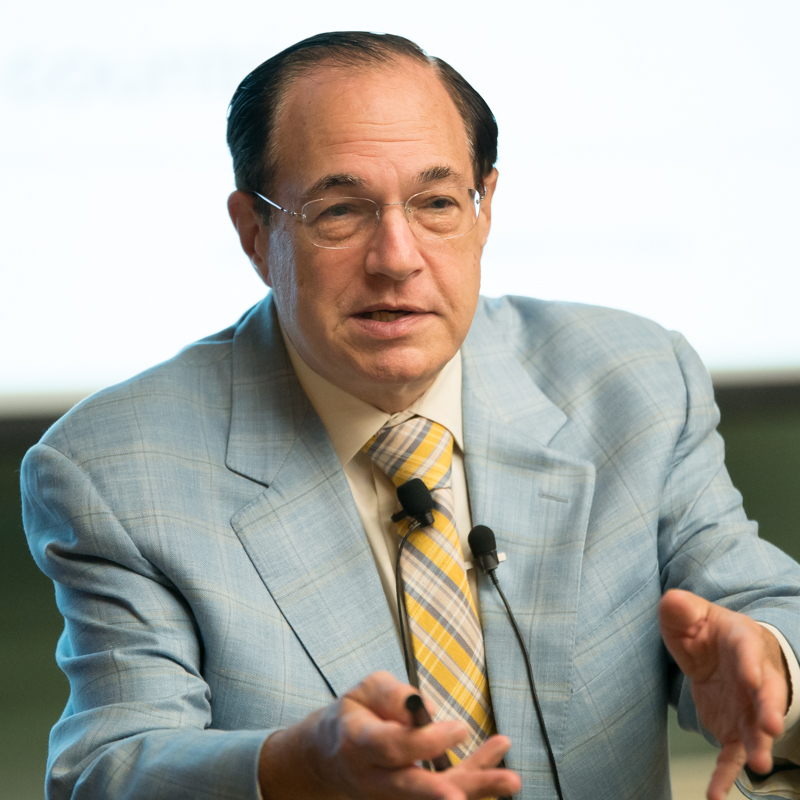
Dr. Michael Shamos
Distinguished Career Professor; Director, Institute for eCommerce
Bio
Michael Shamos is a Distinguished Career Professor in the School of Computer Science at Carnegie Mellon University. He is Director of the MSIT eBusiness Technology Program and a Director of the Universal Library. He obtained an A.B. in Physics from Princeton under John Wheeler in 1968, then worked as a programmer in IBM's Components Division, simultaneously earning an M.A. in Physics from Vassar College in 1970. From 1970-1972 he served as a commissioned officer in the U.S Public Health Service as a Supervisory Programmer at the National Cancer Institute in Bethesda, Maryland, earning an M.S. degree in Technology of Management from American University.
Dr. Shamos enrolled in Yale University's Department of Computer Science as a member of its second entering class in 1972, earning an M.S. in 1973 and an M. Phil. in 1974. For his thesis work he developed fundamental algorithms in Computational Geometry with Dan Hoey. He was the author with Franco Preparata of "Computational Geometry: An Introduction," the first book in the field. In 1975, Dr. Shamos was hired as an Assistant Professor in the Computer Science and Mathematics departments at Carnegie Mellon. He was named "czar" of CMU's introductory programming courses and taught a graduate course in analysis of algorithms. In 1978 he received the Ph.D. from Yale and also joined the CMU Department of Statistics. In 1979, he formed Unilogic, Ltd. to commercialize Scribe, a document production system written by Brian Reid, who was then a graduate student at CMU. In 1981, after earning a law degree at Duquesne University, he requested adjunct faculty status at CMU to work full-time for Unilogic. In 1984, Unilogic spun out Lexeme Corporation, formed to develop automated tools for source language translation. The assets of Unilogic were sold in 1987 and Dr. Shamos spent the next three years largely studying billiard history, ultimately publishing several books on the subject. Since 1988 he has been a Contributing Editor of Billiards Digest magazine. More details can be found here.
In 1990, Dr. Shamos joined the Webb Law Firm, the largest intellectual property firm in Pittsburgh. He spent eight years involved in all phases of intellectual property, prosecuting patent applications and litigating trademark and copyright cases. In 1998, he returned to CMU as Principal Systems Scientist to serve as a Directory of the Universal Library, a book scanning project that has now sponsored the scanning of more than 1.5 million books. At that time, he held a joint appointment in the Language Technologies Institute and the Tepper School of Business, teaching analysis of algorithms and intellectual property law. In 1999, he was named Co-Director of the Institute for eCommerce, a joint venture between the School of Computer Science and Tepper, teaching eCommerce Technology, Electronic Payment Systems and Internet Law as part of the Master of Science in Electronic Commerce (MSEC).
In 2001, Dr. Shamos was named Distinguished Career Professor. He was then asked to work on the development of a technology version of the MSEC degree using the story-centered curriculum concept pioneered by Roger Schank. Renamed the MSIT in eBusiness Technology, this was the joint effort of about a dozen SCS faculty members, all of whom still teach in the program. Dr. Shamos is now its Director. Since 2001, he has been Visiting Professor in the Department of Computer Science at the University of Hong Kong, where he teaches Electronic Payment Systems each year.
From 1980-2004 and then again from 2004 through the present, Dr. Shamos has served as statutory examiner of computerized voting system for the Secretary of the Commonwealth of Pennsylvania. He has also inspected voting systems for West Virginia, Nevada, Delaware, Texas and Massachusetts, eventually participating in over 120 examinations. He has testified on several occasions before the U.S. Congress and state legislatures concerning electronic voting. In 2004, he designed and taught a course at CMU entitled "Electronic Voting." See the electronic voting section.
Dr. Shamos has served as an expert witness in more than 160 cases involving computer technology. See the full list.